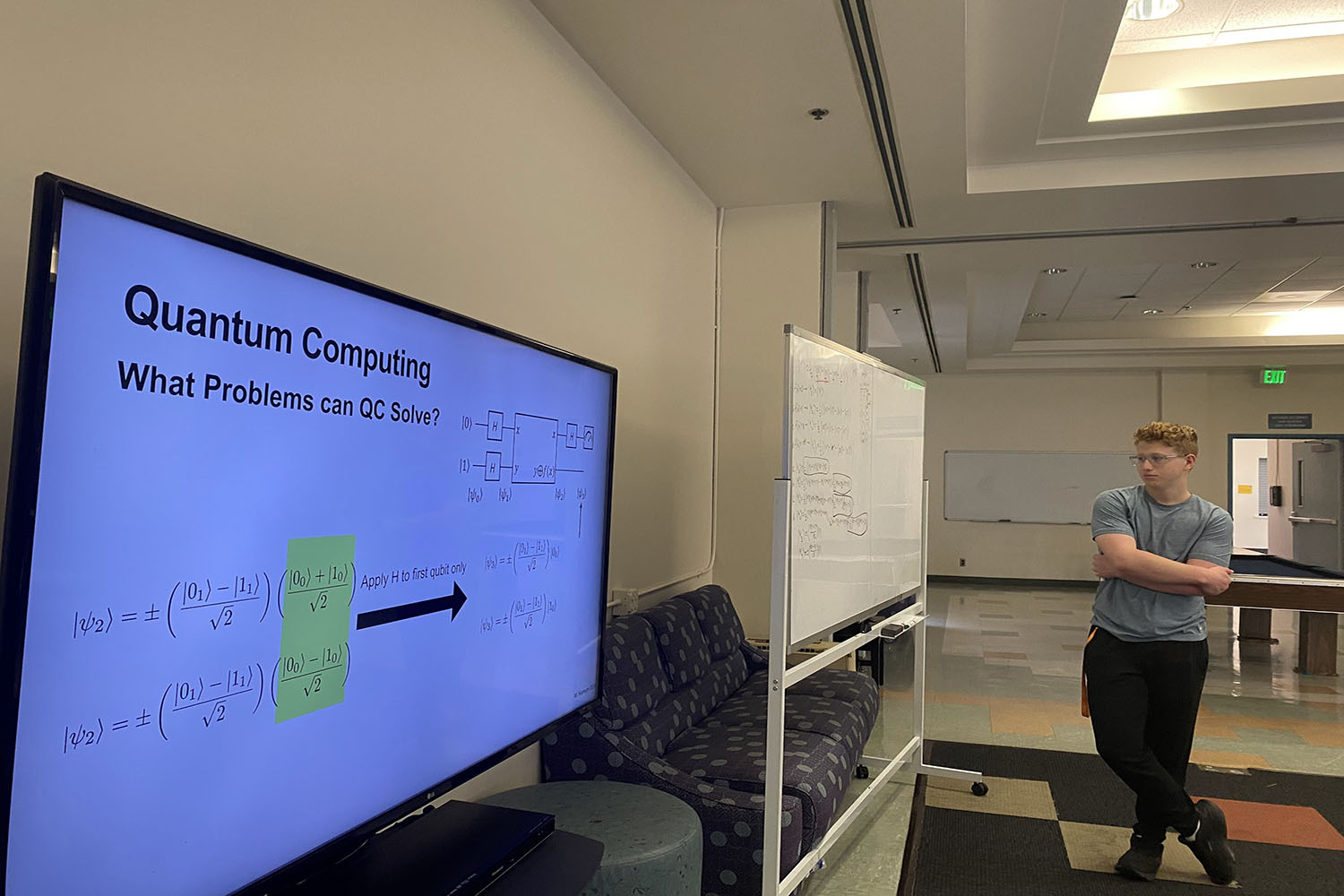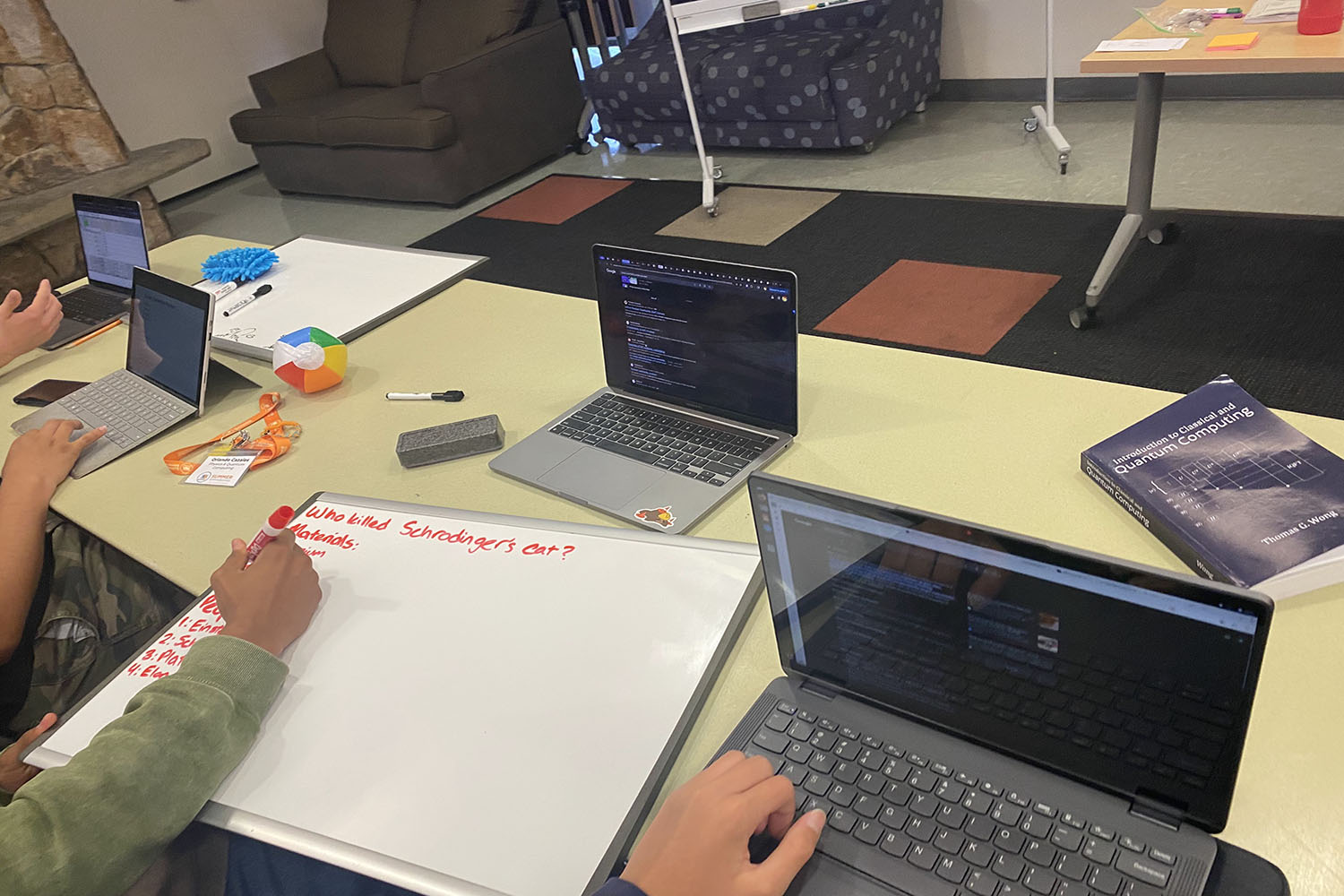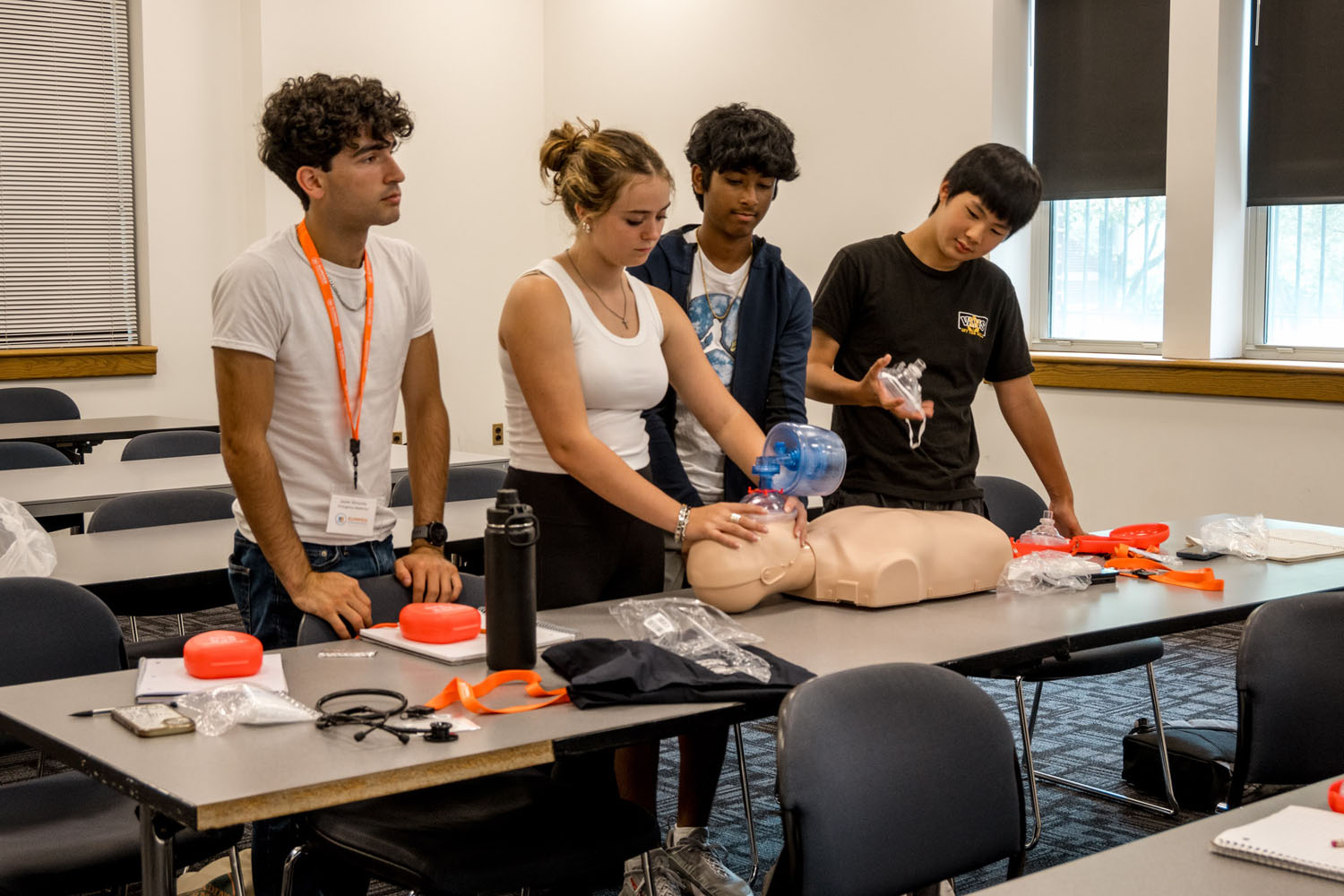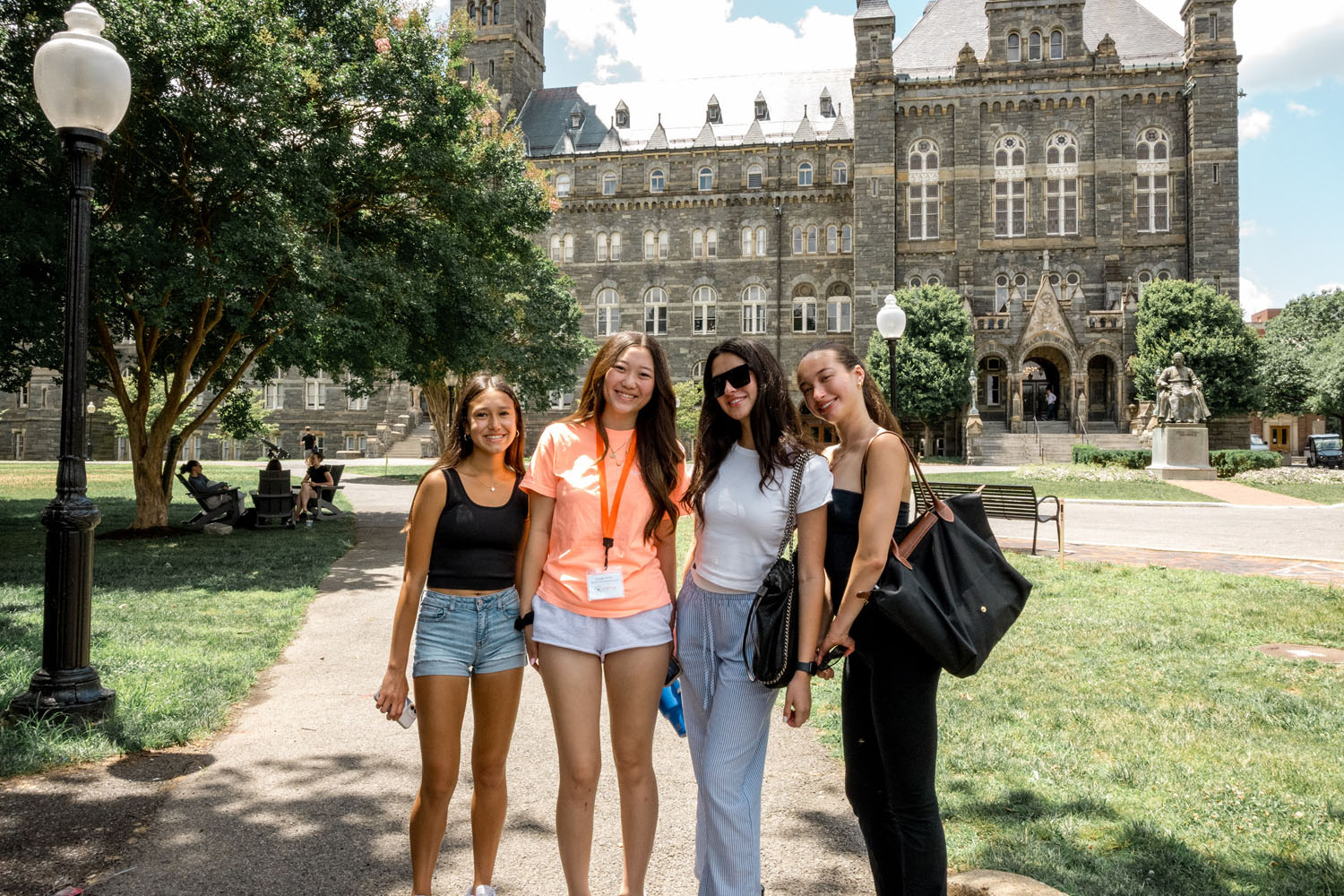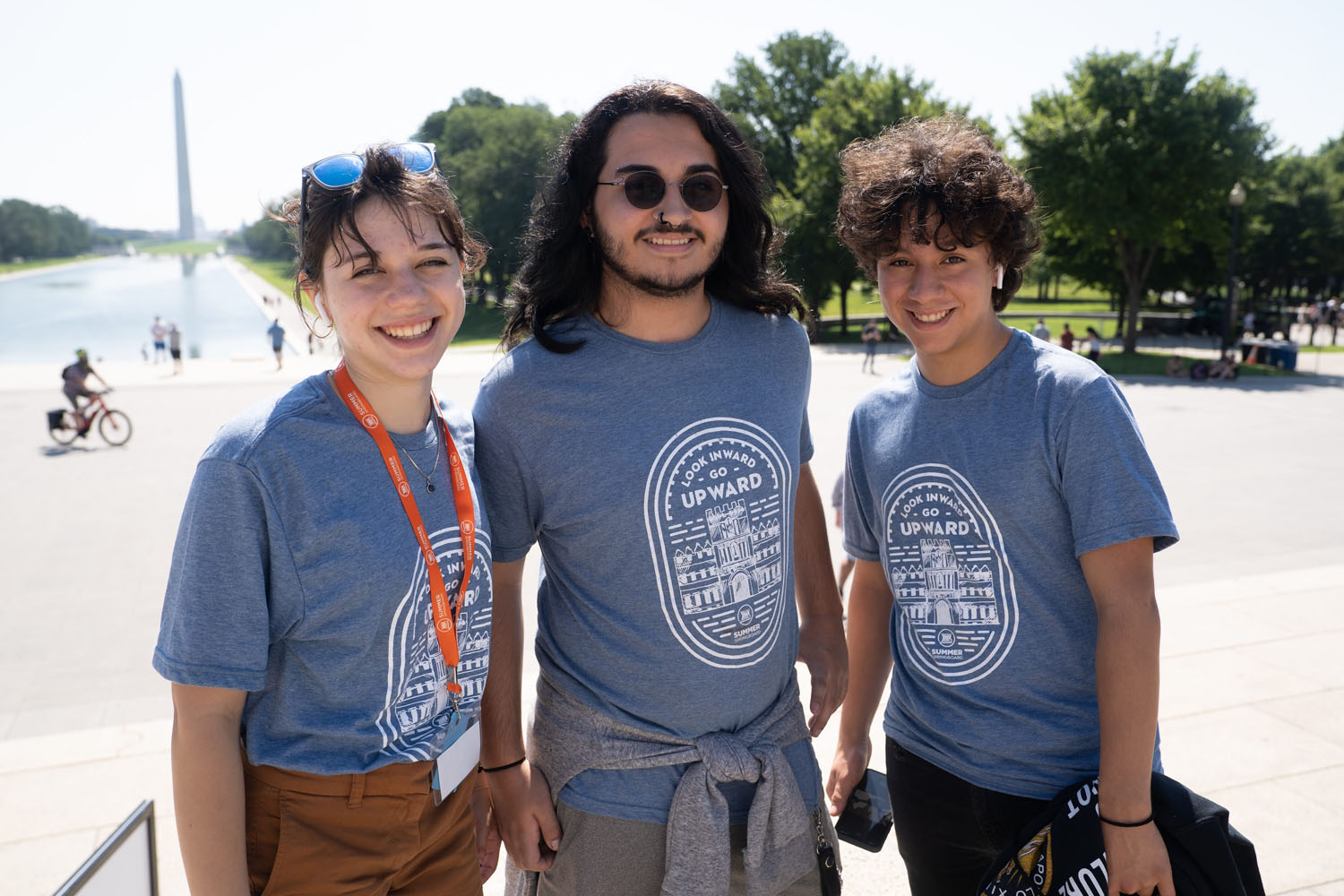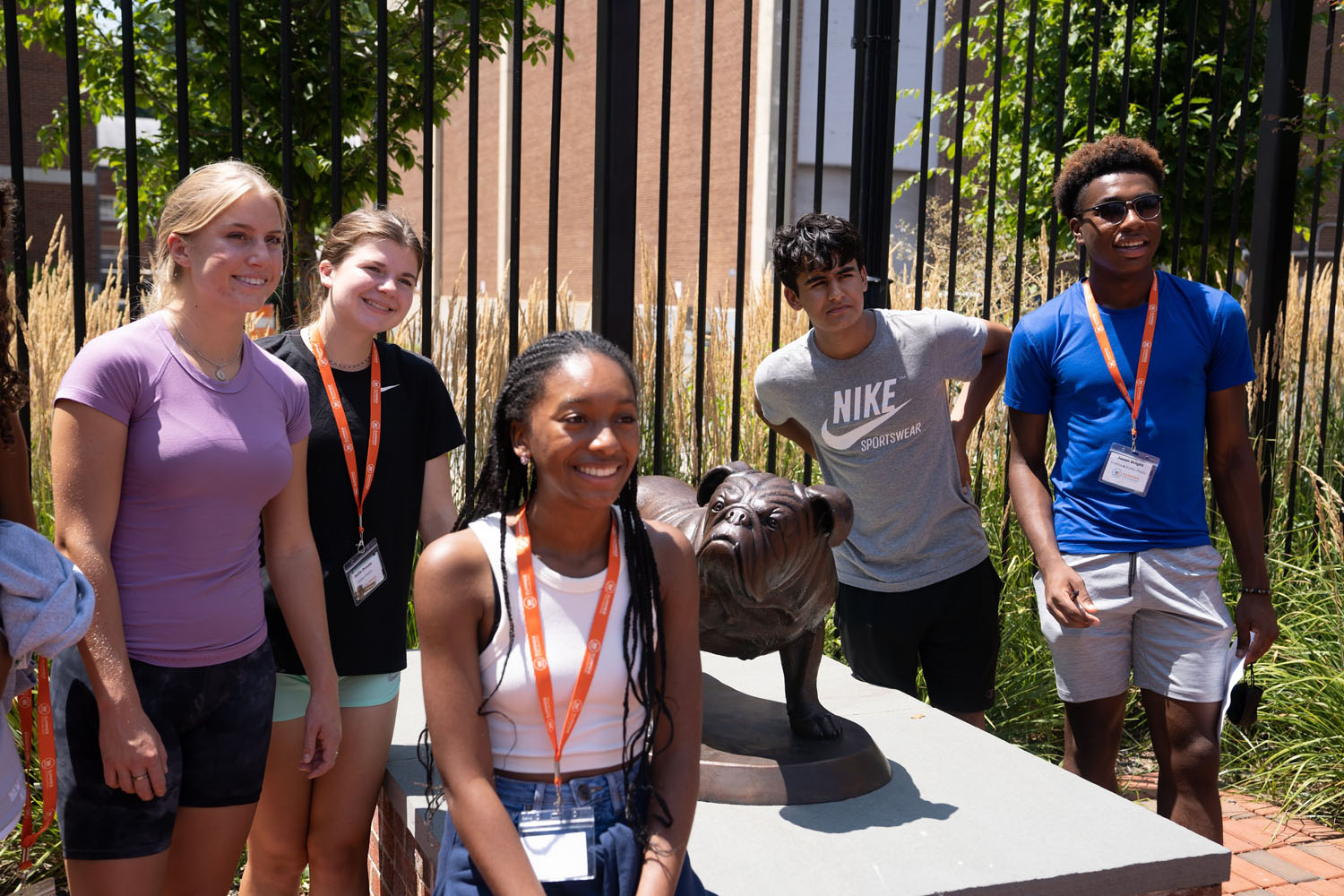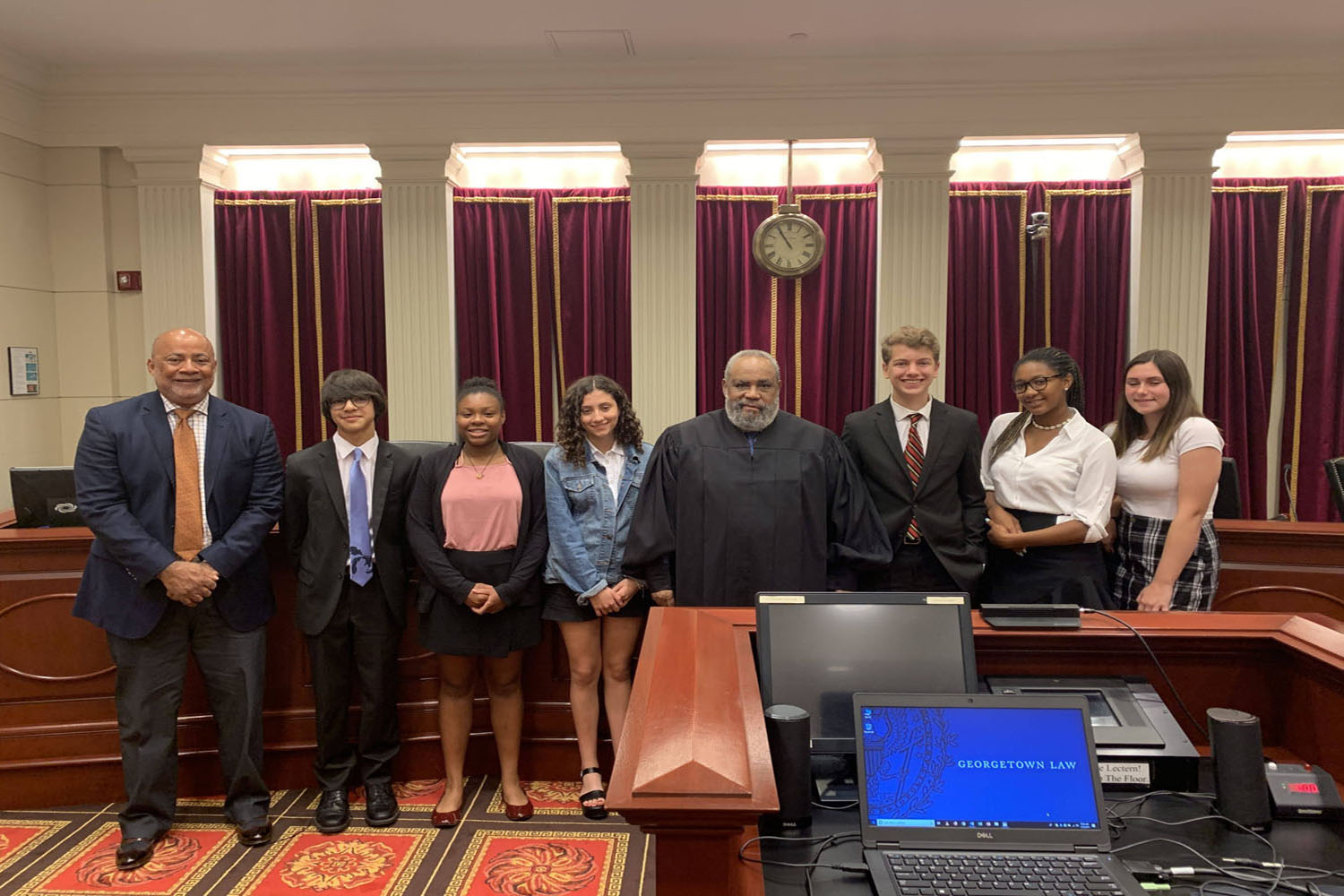Summer Springboard
Physics & Quantum Computing
ON THE CAMPUS OF GEORGETOWN UNIVERSITY

EXPLORE THE CUTTING-EDGE WORLD OF QUANTUM COMPUTING THROUGH THIS HANDS-ON PROGRAM AND PREPARE FOR TOMORROW'S TECHNOLOGY
Physics & Quantum Computing
- Learn accessible yet challenging introductory material in physics and quantum computing.
- Cover key topics including quantum mechanics, quantum information science, quantum computation, and quantum hardware.
- Understand the importance of foundational quantum computing knowledge for politicians, public health researchers, and quantum engineers.
- Develop essential skills in quantum computing, focusing on concepts like superposition and entanglement, and explore real-world quantum phenomena and applications.
- Engage with a curriculum designed by leading experts from academia and the quantum computing industry.
- Participate in individual and group activities such as programming basic quantum operations, visualizing quantum circuits, and studying quantum computing’s impact on cryptography.
Summer Springboard
Physics & Quantum Computing
About This Course
A quantum computing program for teens on a university campus in Washington, D.C.
Quantum computing is set to revolutionize technology in the coming decade by leveraging the unique principles of quantum mechanics to solve problems beyond the reach of classical computers. Once the stuff of imagination, today’s superconducting quantum processors promise unprecedented speed and capacity that could transform numerous fields. This program prepares students for this future by introducing essential quantum computing concepts like superposition and entanglement, alongside foundational topics in physics, quantum information science, and hardware. The curriculum is crafted by leading experts from both academia and the quantum industry to ensure a deep, relevant learning experience.
Students will engage with accessible yet challenging material through individual and group activities that highlight the key differences between classical and quantum computing. Past projects have included programming basic quantum operations, visualizing quantum circuits, and exploring quantum computing’s impact on cryptography. This course also emphasizes the broader significance of quantum knowledge for diverse fields such as politics, public health, and engineering, equipping students with the skills and understanding needed to thrive in the rapidly evolving quantum landscape.
TOPICS YOU'LL EXPLORE
Hands-on Learning
Career Exploration
This program also offers valuable career exploration opportunities, helping students understand the growing roles of quantum computing across various fields. From technology and engineering to public policy and healthcare, students discover how foundational quantum knowledge is shaping the future workforce. Guided by experts, they gain insight into potential career paths and the skills needed to thrive in the emerging quantum industry.
RESOURCES
Course Infosheet
Click here to view or download the printable infosheet for this course.
Program Catalog
Click here to request our catalog to learn more about our summer programs and courses.
Campus Page
Click here to view the website page for this campus and learn more.
“It was good experience. It had a good balance between academic courses and non-academic activities. It introduced real world problems and events to let the student take into consideration when choosing their major.”
-Noah B. | Alumni Student
Summer Springboard
Physics & Quantum Computing
Meet Your Instructor
Mark Hannum holds his MS in Applied and Engineering Physics from George Mason University and his BA in Mathematics and Physics. He is an accomplished educator and physicist, and has over 20 years of experience teaching both in high school and at American University. He is an Albert Einstein Distinguished Fellow and is currently directing the Quantum Information and Optics research program at Thomas Jefferson High School for Science and Technology (TJHSST). With a fervent commitment to advancing science education, Mark has helped expand the access of high school students to Quantum across the country. He served as the K-12 Program Manager at the American Association of Physics Teachers (AAPT). During his tenure, he played a pivotal role in numerous National Science Foundation (NSF) supported projects, focused on equipping teachers with the expertise to introduce quantum concepts to their students. Notably, Mark Hannum was one of the authors of the Key Concepts for Future Quantum Information Science and Engineering (QISE) learners, and he also contributed to the development of the Key Concepts Physics Frameworks.
MARK HANNUM

“I really enjoyed it, I thought it was good mix of academics and activities and I really was able to connect with people especially in the free time so having that as an option was great. I thought it was a great mix and intro to college life which was very helpful.”
-Addy M. | Alumni Student
Summer Springboard
Physics & Quantum Computing
Dates & Tuition

| 2026 Dates |
|---|
| Session 1: June 21 – July 3, 2026 |
Click here to enroll in this course using our online enrollment form.
| Tuition |
|---|
| Residential Tuition: $5,698 |
| Commuter Tuition: $2,998 |
Tuition Protection Plan: Allows for cancellation for any reason up until the day of the program.
| Location |
|---|
| City: Georgetown Neighborhood |
| State: Washington, D.C. |
| Campus: Georgetown University |
Summer Springboard programs are not run by our campus partners (with the exception of Cal Poly and NYSID which are run in partnership with SSB). Universities and their affiliated departments and partners do not control and are not responsible or liable in any manner for any part of the Summer Springboard program.


